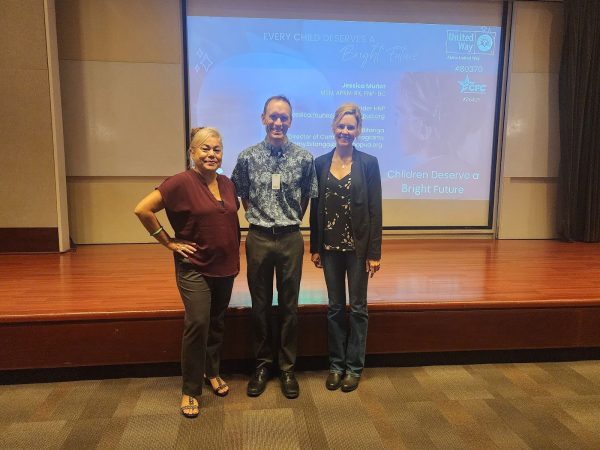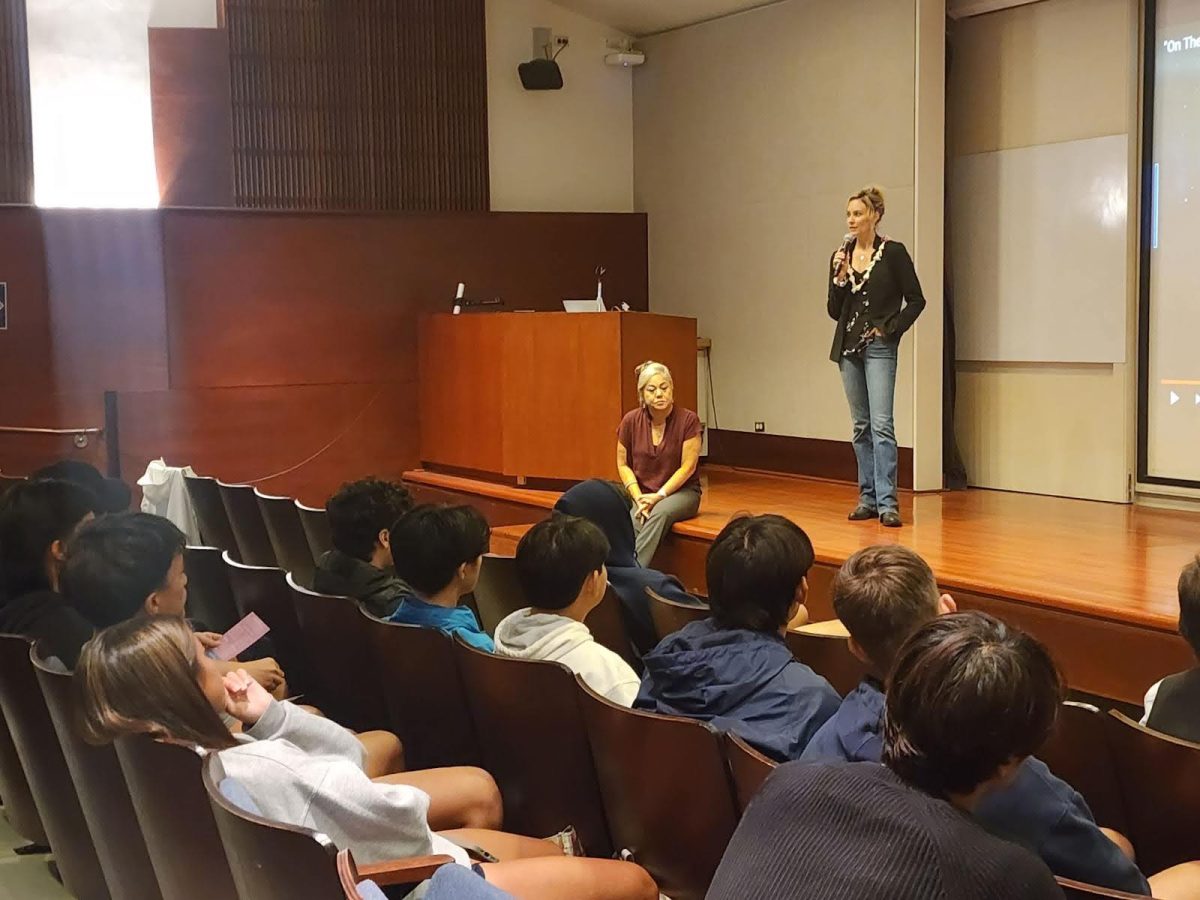On Wednesday, November 29, students and faculty welcomed Jessica Muñoz, founder of Ho’ōla Nā Pua – an organization that aims to stop sex trafficking in Hawaii and provide care for those who have been exploited – and Tammy Bitanga, director of community programs.
Before founding Ho’ōla Nā Pua, Muñoz was a trained nurse practitioner working at Kapiolani Medical Center. When she noticed a pattern of physically and mentally abused, sexually exploited children coming to the hospital for treatment, her “justice gene” pushed her to make a change.
Muñoz continued to share that Hawaii suffers greatly from sex trafficking and exploitation; the average age of victims in Hawaii is 11, compared to the national average of 14. Moreover, 3 out of 4 victims knew their perpetrator. Many of the young victims fail to be recognized, as they lie on a thin line between juvenile justice and the child welfare system. The justice system often labels victims as ‘runaways,’ ‘addicts,’ and ‘delinquents,’ which invalidates and overlooks the underlying cause of their behavior. These labels hide the victims from the child welfare system and deny them of the help they deserve. The cycle continues.
Bitanga provided a powerful testimony of this issue through her personal story as a victim of sex trafficking. She was raised in foster care under feeble living conditions; when she became a teen, she entered the sex trafficking enterprise. Slowly, the enterprise became normal for her, and it was extremely difficult for her to leave it completely. However, after 23 years, she departed from the enterprise and now works to raise community awareness on sex trafficking around the state.

Currently, Ho’ōla Nā Pua offers many community-based programs to reach youth, their families, and related professionals to target all aspects of sex trafficking and stop it permanently. One of their biggest missions is to heal victims of sex trafficking. According to Muñoz, “behavior is the language of trauma” – this is the key to understanding and fully healing the victims. One of its branches, the Hōkū group services, provide support to youth in juvenile facilities by teaching resilience and healthy relationships.
Additionally, Ho’ōla Nā Pua provides residential treatment programs for commercially sexually exploited youth in Hawaii. The Pearl Haven campus on the North Shore of O’ahu provides individual and group therapy, family therapy, and clinical care. They strive to provide a new normality for sexually exploited youth, offering sports, Hawaiian cultural arts, trauma-informed yoga, and more programs to aid youth in reenvisioning their future.
“I don’t want people to feel sorry for me,” Bitanga affirmed. “What I want to do is bring awareness to the community so that we know that we can overcome these things – overcoming them by the continuum of care.”
Sex Trafficking Points of Contact:
ALOHA to 741741: Confidential crisis support via text
808-832-3100: Hawai’i CARES Crisis Line
888-373-7888: National Human Trafficking Center
HELP to 233733 (BEFREE): National Human Trafficking Center

